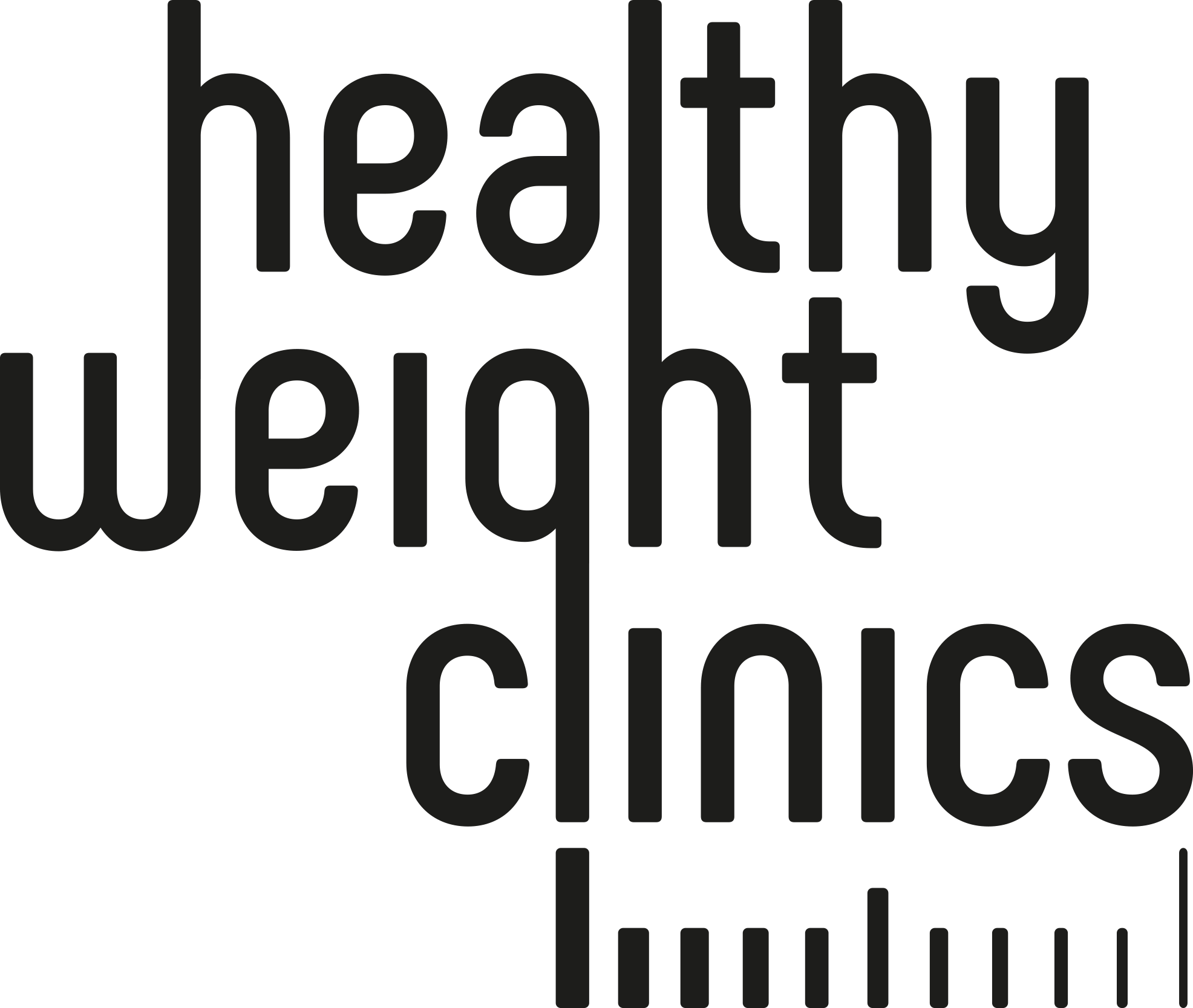Frequently Asked Questions
What medication do you use?
We use drugs from the GLP-1 agonist class. GLP means glucagon-like peptide and is a so-called incretin. Incretins are hormones that occur naturally in the gut. During eating, these hormones stimulate the pancreas to release insulin. The incretin hormone GLP-1 (glucagon-like peptide-1) ensures that your appetite decreases and you feel full for longer.
Where does the medication come from?
The medication we work with comes from pharmacies registered in the Netherlands that only issue officially registered prescription medicines.
How is the medication administered?
The medication is given by injections under the skin in the abdomen. You administer it yourself. We will give you clear instructions on how to do this.
How much result can I expect?
Weight loss partly depends on your lifestyle. On average, participants in the study below lost about 8-12% of their body weight in a period of 6 months*.
Another recent study shows an average weight loss of around 15% after 68 weeks**.
*See publication: Mehta A et al. | Obes Sci Practice. 2017; 3(1): 3–14.
**See publication: Wilding JPH, Batterham RL, Calanna S., et al. | 10.1056/NEJMoa2032183
What is the advantage of this method over other lifestyle programs such as dieting?
Using GLP-1 medication reduces your appetite and slows down the emptying of the stomach. Your brain sends less of the "hunger feeling" signal. This makes it easier to eat less and you feel satisfied for longer. There is less of a struggle about "whether or not to indulge in food" and you can focus on other important daily matters.
Do you work with a special diet or lifestyle program in addition to the medication?
To support the waste process, we work with nutritional advice from the Nutrition Center. Furthermore, each client receives a personal exercise and nutrition plan. This includes a 30-minute online consultation with our lifestyle coach. In our closed online community we share successes and experiences and offer additional lifestyle-related information.
Our lifestyle coach Andreas can help you 1-on-1 to improve your lifestyle. Together you work on your goal, your habits and your self-confidence. Andreas teaches you how to train your health and gain more control over your life. For rates click here
What are the most common side effects of GLP-1 agonists?
The most common side effects are nausea and diarrhea. This occurs in more than 10% of patients and is transient. Other side effects, such as vomiting, abdominal pain, constipation and gastric mucosal inflammation, occur in 1 to 10% of patients and are also transient.
Are the effects permanent after stopping treatment with GLP-1 agonists?
Conclusions STEP 1 trial extension: One year after discontinuation of once-weekly subcutaneous semaglutide 2,4 mg and lifestyle intervention, participants regained two-thirds of their previous weight loss, with similar changes in cardio-metabolic variables. Findings confirm the chronicity of obesity and suggest that continued treatment is necessary to maintain improvements in weight and health.
Is GLP-1 medication reimbursed for the treatment of overweight and obesity?
Some medicines are used for a very limited group of obese people compensate.
When should I not use this medication?
Use is not recommended during pregnancy and breastfeeding. If you want to have children, you should stop taking the medication 2 months before you try to become pregnant. This medication has no known significant interactions with other medications. During the first consultation we will look together to see if there are other reasons why it is better not to use this medication. If you have type 2 diabetes, we advise you to contact your doctor.
What costs are included in your subscription?
The costs for consultations, medication, blood pressure measurements, exercise and nutrition plan, online community and body analysis are all-inclusive. The costs for the blood test will be charged to your health insurer and will be deducted from your deductible.
Which medication is registered in the Netherlands for the treatment of obesity?
There are currently three medicines registered in the Netherlands for the treatment of obesity. Read more about this here.

